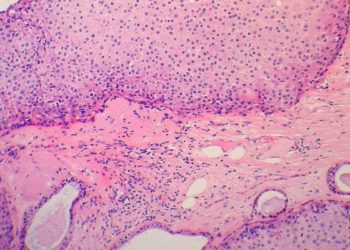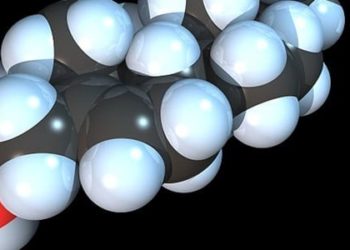PCSK9 inhibitors found to lower cholesterol in case reports of patients with statin-associated autoimmune myopathy
1. In this case report, two patients who developed statin-associated autoimmune myopathy had their cholesterol levels effectively managed with the novel cholesterol reduction medication evolocumab.
2. The use of this drug did not result in any adverse events for the two patients included in the case study throughout follow-up.
Evidence Rating Level: 4 (Below Average)
Study Rundown: Recently, there have been reports recognizing a rare myopathy known as a statin-associated autoimmune myopathy. This condition is thought to be immune-mediated, rather than due to adverse drug effects of statins. The characteristic features of statin-associated autoimmune myopathy are the association with antibodies against 3-hydroxy-3-methylgultaryl coenzyme A reductase (HMGCR), as well as persistence after patient withdrawal of statins. Managing this condition often requires immunosuppressive medications; management is challenging as switching to other cholesterol-lowering medications may potentially worsen this myopathy. The authors of this study aimed to describe the effective and safe use of a new treatment option for patients who have developed statin-associated autoimmune myopathy: monoclonal antibodies against proprotein convertase subtilisin/kexin type 9 (PCSK9). This drug is thought to decrease cholesterol levels and cardiovascular morbidity and mortality among high-risk patients, without exacerbating myopathy symptoms. The study limitations included the sample size; as only 2 patients were included in this case report, and further studies would be important to demonstrate the safety and efficacy of this treatment across a larger patient population. Further, the study did not conduct follow-up beyond one year.
Click to read the study in Annals of Internal Medicine
Relevant Reading: PCSK9 inhibitors: a new era for lipid-targeted therapies?
In-Depth [case report]: The authors of this study assessed the use of monoclonal antibodies against PCSK9 in 2 patients who had developed disabling statin-associated autoimmune myopathy, but still required management of their cholesterol levels through other options due to severe coronary artery disease. It is important to note that both of the patients had the class II HLA allele DRB1*11:01 and antibodies against HMGCR with a necrotizing myopathy, characteristic of the statin-associated autoimmune myopathy. The authors specifically used the drug evolocumab at a dose of 140 mg subcutaneously every 2 weeks. Following treatment, the low-density lipoprotein (LDL) cholesterol levels were found to have decreased by 55% and 56.4% in the patients. No adverse events were reported during 6 months of follow-up for one of the patients and 9 months of follow-up for the other.
Image: PD
©2019 2 Minute Medicine, Inc. All rights reserved. No works may be reproduced without expressed written consent from 2 Minute Medicine, Inc. Inquire about licensing here. No article should be construed as medical advice and is not intended as such by the authors or by 2 Minute Medicine, Inc.







